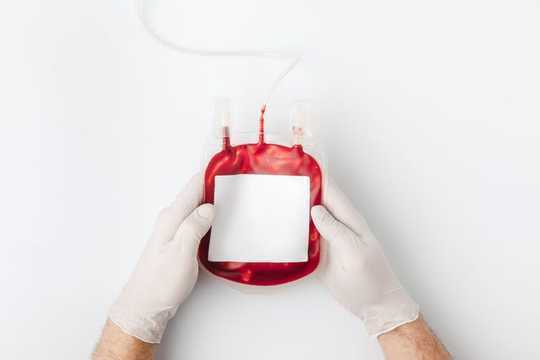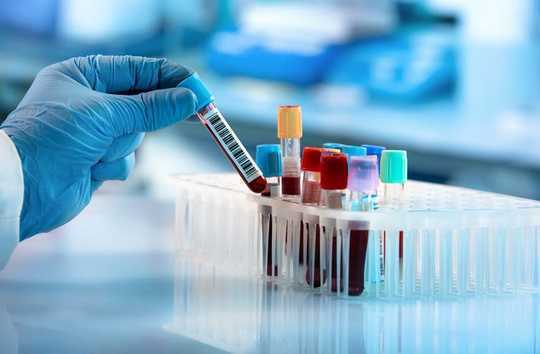A recent study from China, which has not been peer reviewed yet, suggests a link between having blood group A and a higher risk of getting COVID-19, compared with people who have blood group O. But is this really the case?
As many of us know, there are different blood groups found in humans. Primarily, we differentiate between the A, B, AB and O blood groups. These mean a distinctive sugar molecule is present on the surface of red blood cells for each group.
Commonly, more people are blood group O than blood group A and other groups. For example, in the UK, 48% of people possess blood group O while 38%, 10% and 3% have A, B and AB blood groups, respectively.
The differentiation by blood grouping plays a critical role during blood donation and transfusion to patients. Although the blood-grouping molecules play a role in red blood cells, we do not fully understand their function.
Get The Latest By Email
 Differentiating blood groups is critical for blood donations. LightField Studios/Shutterstock
Differentiating blood groups is critical for blood donations. LightField Studios/Shutterstock
The recent Chinese study, conducted by researchers including from the Zhongnan Hospital at Wuhan University, retrospectively analysed the blood groups of patients from three hospitals in China, two in Wuhan and one in Shenzhen. All of the 2,173 patients had been diagnosed with COVID-19.
At the Wuhan Jinyintan Hospital, they also analysed blood types of 3,694 people who didn’t have COVID-19 and found that 32% had blood group A and 34% had blood group O. Among the 1,775 COVID-19 patients at the hospital, 38% had blood group A and 26% blood group O.
For the other Wuhan hospital in the study – Renmin Hospital of Wuhan University – they did not provide data for the control population. But of the 113 COVID-19 patients they analysed, 40% had blood group A and 25% blood group O.
At Shenzhen Third People’s Hospital, 29% of the control population (23,386) had blood group A and 39% blood group O. And of the 285 COVID-19 patients, 28.8% had blood group A and 28.4% blood group O. Although there was a significant difference between the patients of COVID-19 with blood groups A and O in the Wuhan hospitals, there was no significant difference in the Shenzhen hospital.
No firm conclusion
To date, we don’t have robust scientific evidence to prove that our blood group has a direct relationship with COVID-19 infection. In this observational study, if they considered several other parameters, such as the previous history of other – specifically immune or respiratory-related – diseases, the conclusions might have been different. They have also not explained why they failed to see a significant difference between the blood groups in the Shenzhen hospital. And given COVID-19 is a pandemic, the sample size that they have analysed is not sufficient to draw firm conclusions.
We now need more detailed scientific research to establish the relationship between blood groups and COVID-19 and possibly other viral infections. In the meantime, people should continue to follow the advice provided by their healthcare professionals, government authorities and the WHO to avoid this infection and to control its spread, regardless of which blood group they have.![]()
About the Author
Sakthivel Vaiyapuri, Associate Professor in Cardiovascular & Venom Pharmacology, University of Reading
This article is republished from The Conversation under a Creative Commons license. Read the original article.








